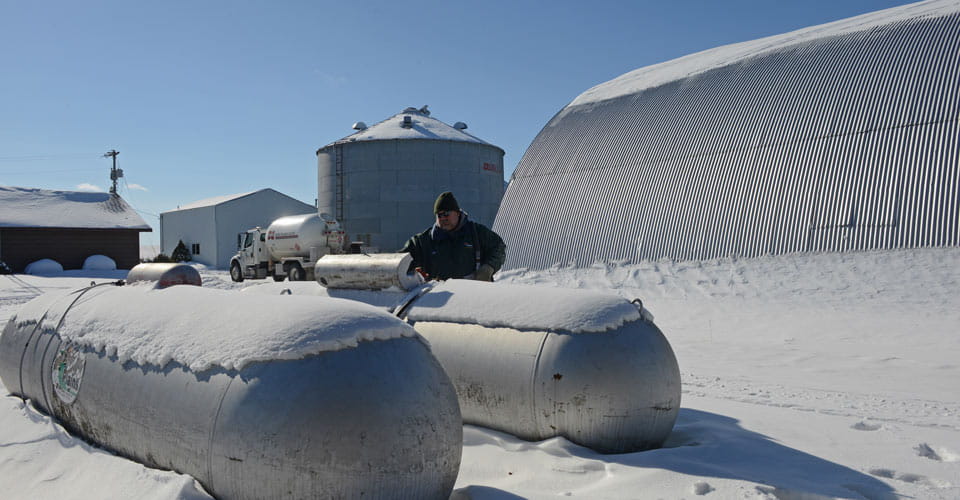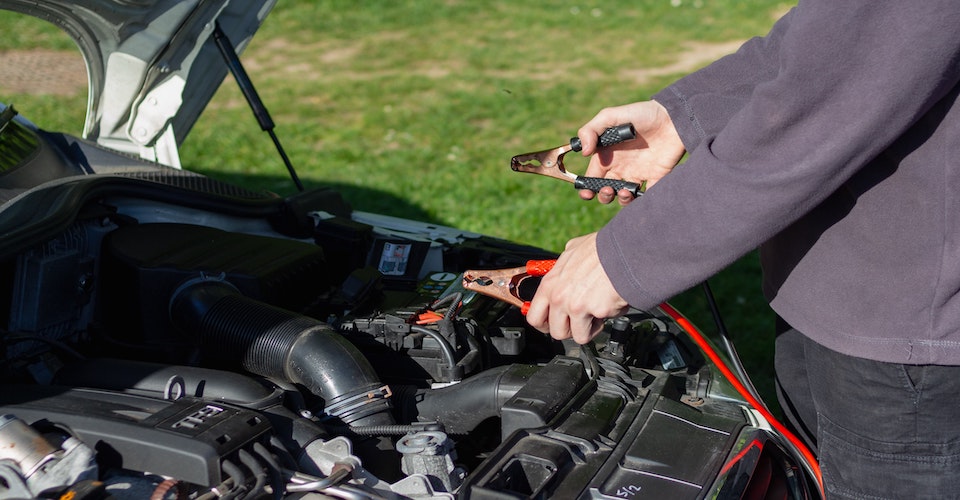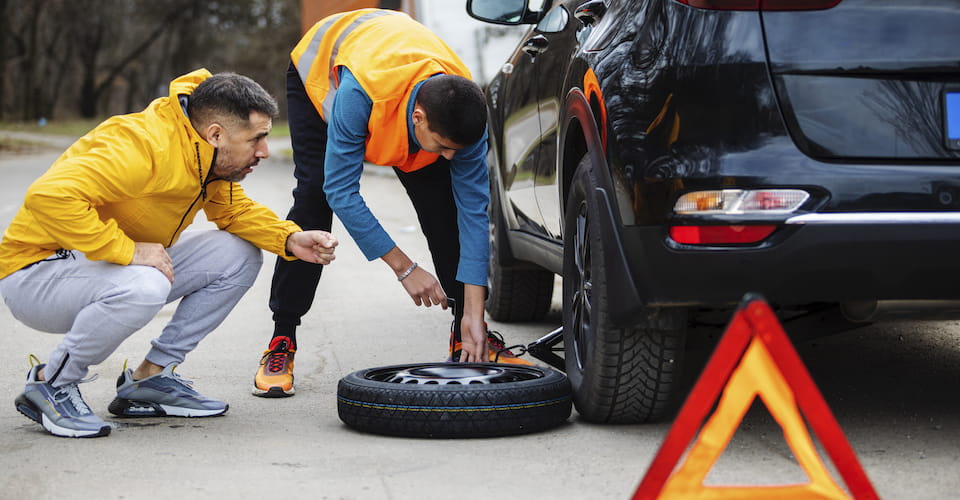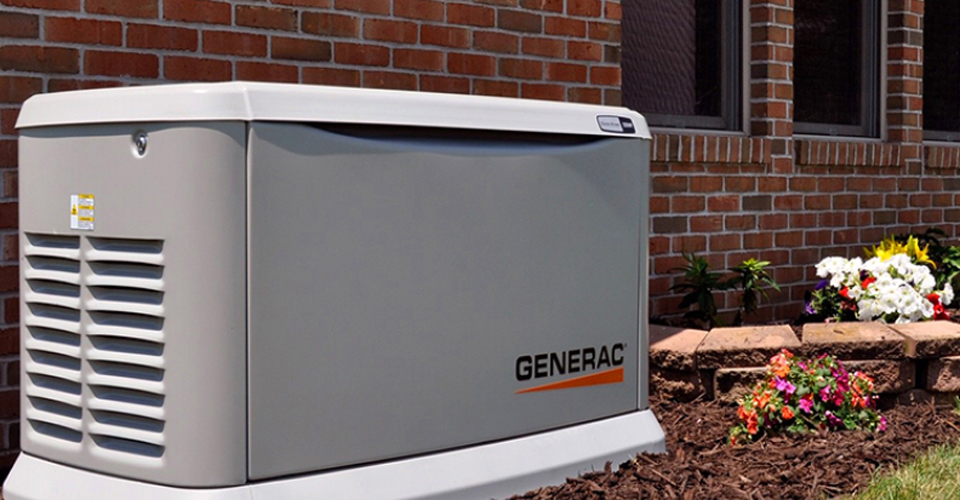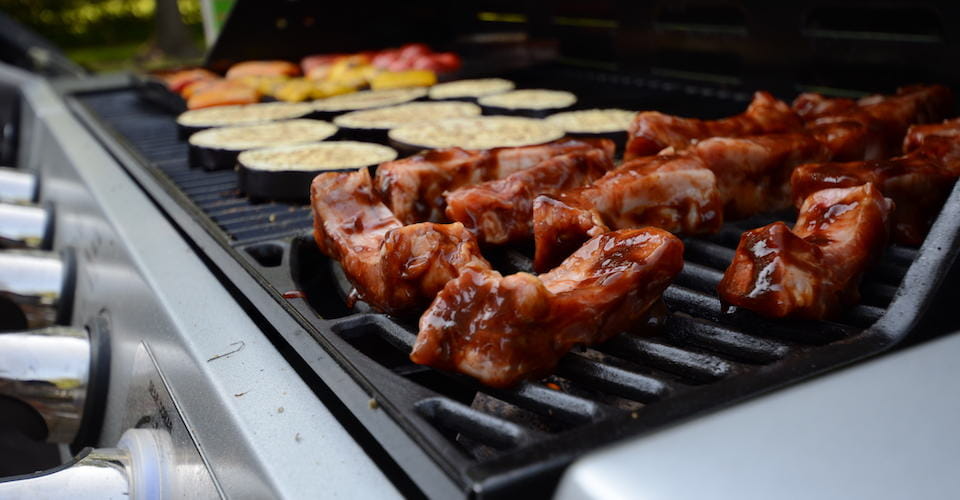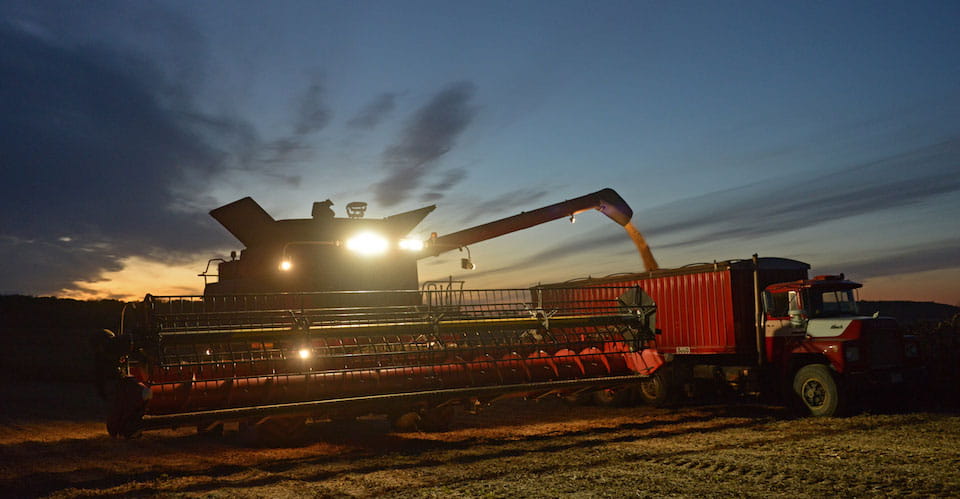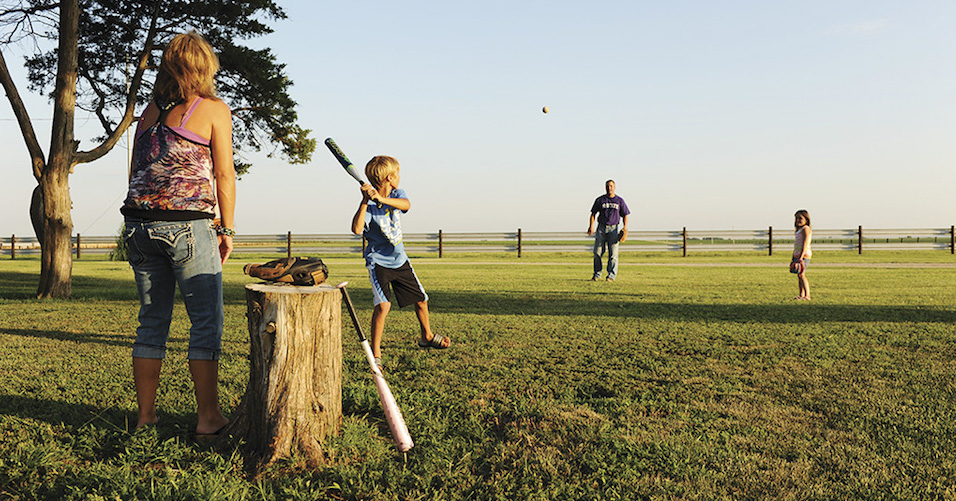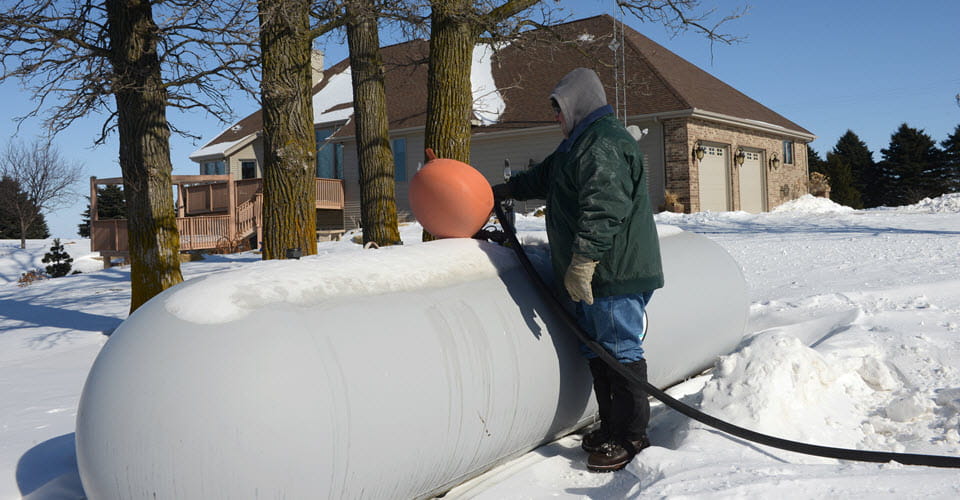
Temperatures are dropping, which means many homeowners are turning up the thermostat to heat their homes. For those who heat their homes with propane, preparation can help make for a safe and easy transition.
Rural homes in particular require extra steps to keep the inside warm and cozy all winter long. Below are some tips and tricks to help ensure your home is heated by propane safely and efficiently all winter long.
Inside your home
- Refill your tank at the beginning of the season. If possible, talk to your dealer about setting up automatic deliveries to make sure your heat stays consistent and you don’t have to worry about your tank running low. Lastly, check your tank level prior to extreme weather or a long holiday weekend.
- Have your heating and appliances checked by a technician. A check-up with a qualified service technician will ensure everything is running as efficiently as possible, which will help conserve fuel and save money on utilities.
- Install a programmable thermostat. Homeowners save an estimated 10 percent per year by using a programmable thermostat. Be sure to set yours to a lower temperature when the house is empty.
- Adjust your water heater. Heating water is usually a relatively large energy expense. If you haven’t already, set your water heater to no more than 120 degrees Fahrenheit to help cut down on costs.
- Reverse your ceiling fan blades. Switching your ceiling fan’s blades to run clockwise will push warm air downward.
Outside your home
- Clean and store your propane grill. Be certain the tank valve is closed. Scrape any food off the grate, wipe down the outside and refer to the owner’s manual for additional cleaning suggestions. Make sure the grill and the grill cover are completely dry to avoid rusting. If possible, store your grill in a dry place as well.
- Ideally, after a long grilling season, your propane canister will be empty. However, if it’s not, don’t store your portable grill tank (or your grill, for that matter) inside your home.
- Never use portable equipment inside. As much as we’d all like grilled steak in February, the inside of your home is not a safe place to use propane appliances like grills and generators.
- Clear any debris in your propane appliance vents that may have accumulated (such as bird nesting material) over the summer months.
Preparing your household propane tank and appliances for winter is an important step to ensure the safety and efficiency of your heating. If any questions or uncertainties come up, reach out to your local propane dealer.



